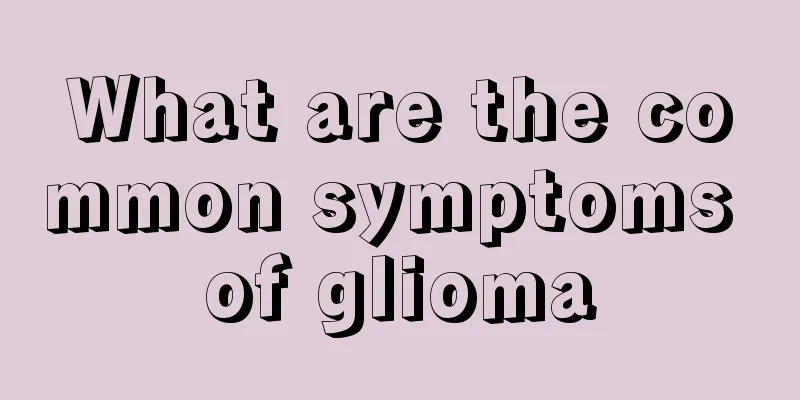What are the common symptoms of glioma

|
If a person has a problem with his brain, he will have various different behaviors and actions from ordinary people. However, problems inside brain cells will seriously affect a person's health. Glioma is a disease that often occurs in the brain, which is what we call brain tumor. Let's take a look at the common symptoms of glioma. Local symptoms will occur according to the location of the tumor, and will progressively worsen. Especially for malignant gliomas, which grow faster, infiltrate and destroy brain tissue, and cause significant surrounding brain edema, local symptoms are more obvious and develop faster. Intraventricular tumors or tumors located in the quiet area may have no local symptoms in the early stages. Tumors in important functional areas such as the brainstem will show local symptoms in the early stages, and symptoms of increased intracranial pressure will not appear until a considerable period of time. Some tumors that develop more slowly often do not show symptoms of increased intracranial pressure until the late stages due to compensatory effects. Symptoms mainly manifest in two aspects. One is increased intracranial pressure and other general symptoms, such as headache, vomiting, vision loss, diplopia, epileptic seizures and mental symptoms. The other is local symptoms caused by the compression, infiltration and destruction of brain tissue by the tumor, resulting in neurological dysfunction. Increased intracranial pressure can cause papilledema, which in turn can lead to secondary atrophy of the optic nerve and decreased vision. Tumors compressing the optic nerve can cause primary optic atrophy, which can also lead to decreased vision. The abducens nerve is easily compressed and pulled, often causing paralysis and double vision. After the brain tissue is compressed, some tumor patients will have epilepsy symptoms, which may be early symptoms. Epilepsy that begins in adulthood is generally symptomatic, mostly caused by brain tumors. Those who are difficult to control with drugs or whose seizures have changed in nature should consider the presence of brain tumors. Those whose tumors are adjacent to the cortex are prone to epilepsy, while those with deep tumors are rare. Localized epilepsy has localization significance. |
<<: What are the main symptoms of glioma
>>: What are the specific complications of glioma
Recommend
Why does eating chili peppers cause acne? Prevention is important
Many girls love to eat chili peppers and can hand...
How to clean a burnt pot bottom
When you are busy in the kitchen, it is inevitabl...
What color lipstick makes dark skin look whiter
Most female friends love to dress up, and makeup ...
What to eat for white hair
When people reach a certain age, they will gradua...
People with low blood pressure should exercise properly and pay attention to diet and nutrition
How to treat low blood pressure? What should you ...
What foods to eat for high blood pressure
There are many kinds of common diseases. In terms...
What causes numbness in fingers?
Numbness in the fingertips may be caused by damag...
What is the reason for tooth chipping
People are very concerned about health issues, es...
Methods to eliminate dampness, heat and toxins first to prevent serious illness
Nowadays, with the rapid development of society, ...
How to clinically determine if you have esophageal cancer
The causes and treatments of esophageal cancer ar...
There is a lump on the side of my butt
Because the skin on the buttocks is the most deli...
Combined treatment of gallbladder cancer
Studies have shown that chemotherapy still cannot...
The difference between alum and alum
Alum is a crystal formed by processing and refini...
What are the causes of thyroid cancer? How to treat thyroid cancer
The incidence of thyroid cancer has been higher i...
Sequelae of iodized oil fallopian tube radiography
In life, many couples who have not gotten pregnan...









